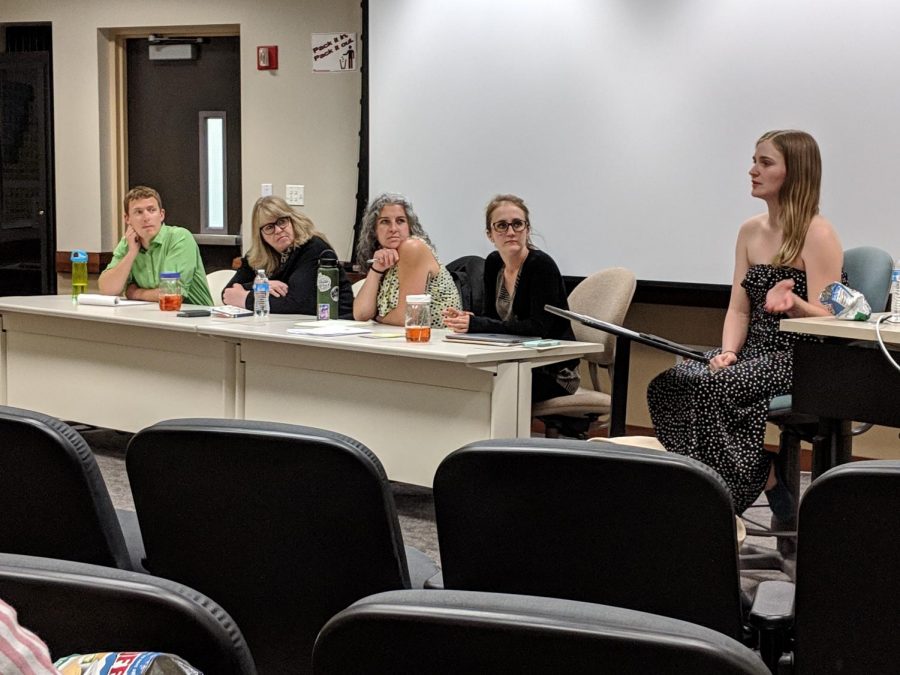Mental health stigma discussed
(Left to right) Joshua Nelson-Ichido, Jamie Gilbert, Dr. Meaghan Nolte and Dr. Arrington Stoll listen to Mariah Greenaway leading discussion with the student audience.
May 8, 2019
A discussion on mental health led by four CWU faculty members was attended by about a dozen students on Wednesday, May 1. The event was hosted by the CWU Communications Department Honor Society Lambda Pi Eta and the Psychology Club, and was led by Mariah Greenaway, a member of Lambda Pi Eta.
“We asked, ‘what can we do to address problems students have on campus?’” Greenaway said. “Lots of people brought up anxiety, depression, [etc.] So we thought why not get some faculty together and talk about it?”
The event started with a presentation by the faculty panelists on mental health stigma and research with each panelist speaking on a specific field of study, followed by questions asked by the audience.
Communications and Asian studies professor Joshua Nelson-Ichido spoke on stigma theory and the fundamentals of stigma. According to him, when we stigmatize someone, we mark them as a separate social entity from us and the rest of our idealized version of society.
The stigma surrounding mental health and its impact on those struggling were the main theme of the presentation. Dr. Meaghan Nolte, a psychology professor, spoke on stigma specifically as it relates to mental health. Communications professor Dr. Arrington Stoll presented data on mental health in the United States and what research has been found on those struggling with mental health. Jamie Gilbert, public relations professor and chair of SOURCE (Symposium of University Research and Creative Expression) told her story of mental health and how it led her to the career she has now.
Nelson-Ichido began the presentation by defining stigma and speaking on the psychological implications that stigmatizing has. He said that stigma isn’t passive and that we actively link someone to “social peril” or a threat to society in some way.
“Stigma means I see you as someone who is a threat not only to you, but as something we don’t want for society,” Nelson-Ichido said.
He went on to speak about how when we mark people through stigma, we generally put fault on them for their stigma. Stigma isn’t just a problem because it’s mean to people, it impacts hiring processes, promotions, health treatment and many parts of daily life. Nelson-Ichido clarified through his part of the presentation that stigmatization isn’t just a result of bad people. He said that everyone does it through a variety of complicated factors relating to how our brains naturally label people so we can easily understand them.
Dr. Meaghan Nolte worked in a mental health crisis team and spoke on how stigma impacts issues of mental health. She said that we mostly see psychosis in movies and other media as a plot point or in the form of characters who are “crazy,” and that this impacts specifically youth who develop a psychotic disorder and often go through an identity change, knowing that other people will begin to stigmatize them.
“We know how stigma negatively impacts people and changes perceptions of them,” Dr. Nolte said. “Imagine how confident you are if you stigmatize yourself.”

